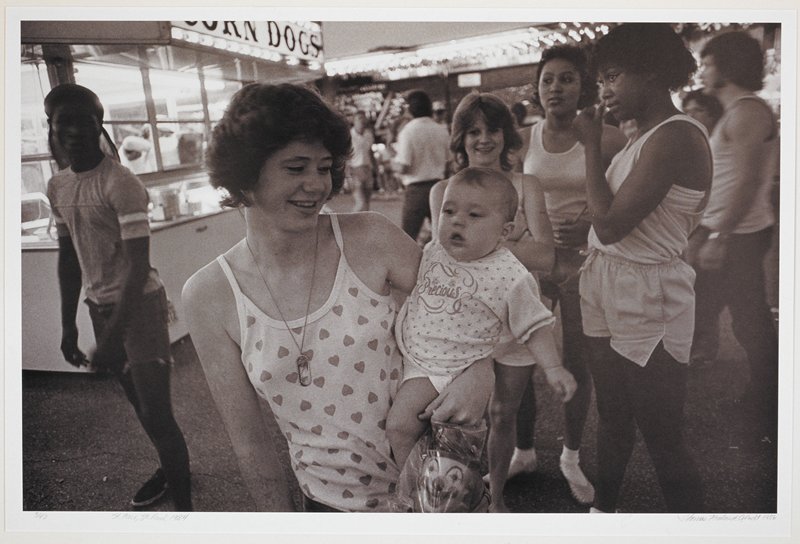Blog
Fresh perspectives on art, life, and current events. From deep dives to quick takes to insightful interviews, it’s the museum in conversation. Beyond the walls. Outside the frame. Around the world.
The Latest

Creative activity: Mia’s long, unlikely history with the Minnesota State Fair
By Diane Richard For years, Mia had a booth in the cavernous Education Building at the Minnesota State Fair, giving away things like cardboard fans, dubbed “Art on a Stick.” With the flick of a wrist, the eye-catching freebies kept fairgoers cool during those sticky hours at the Great Minnesota Get-Together, which of course is ...

Virtual vacations: Art for traveling without leaving home
By Tim Gihring If you’re staying close to home this summer, you’re not alone—and you’re not without options. Call it a vicarious vacation or an armchair adventure, or maybe this is how you prefer to travel, without the hassle of the real thing. From the collection at Mia, here are 10 places to escape to ...

The man who flew too close to the sun: Kehinde Wiley and the “father of aviation”
This is a transcript of The Object podcast, episode seven, first broadcast in June 2019. You can listen, subscribe, and find all-new episodes here, or wherever you listen to podcasts. In 2009, the painter Kehinde Wiley flies to Brazil. He’s there to make some portraits, in his signature style: painting brown-bodied men in the heroic ...

The artist Kenneth Tam on pandemic life and the rise in anti-Asian racism
By Gabriel Ritter The work of Kenneth Tam takes shape as video, sculpture, and photography that challenges our received ideas and societal norms regarding the male body as it relates to physical intimacy, sexuality, vulnerability, and private ritual. His practice involves the participation of strangers—often recruited through online message boards and forums such as Craigslist ...

Secrets of the veiled lady: The passion and politics behind Mia’s marble masterpiece
By Tim Gihring On October 12, 1846, William Spencer Cavendish dropped by the studio of Raffaelle Monti, in Milan, Italy, to inquire about a lady. Cavendish was the 6th Duke of Devonshire, widely known in England as the “bachelor duke.” He had eight of the finest homes in Britain. He had 200,000 acres of British ...

Craftibaking: Let challah ease your pandemic anxiety
By Nicole LaBouff Maybe you are still getting through this pandemic by distractibaking. Or maybe you have decided that bread is over and have turned to knitting, crochet, and other crafts as a way to calm your nerves. If either—or none—of these applies, you might want to consider braiding challah, a practice that brings the ...

Our daily bread: The art of the ultimate comfort food
By Diane Richard I grew up on Butternut, the spongy white sandwich stuff that’s as far from artisanal bread as Tang (which I also grew up with) is from fresh-squeezed orange juice. So why did I just spend good hard cash to order flour from a local mill (thanks, Sunrise Flour Mill)? And why does ...

Confronting the legacy of looting: From colonialism to Nazis, Mia is reckoning with the ancient problem of plunder
By Tim Gihring In February 2007, a UNESCO official named Alain Godonou gave a speech in which he concluded, with some back-of-the-envelope math, that “90 to 95 percent of African heritage is to be found outside the continent in the major world museums.” Godonou is now the national director of museums in Benin, and his ...

To feel seen: Why representation matters
By Natalia Choi On the morning of the museum’s staff photo shoot, I wore my favorite bright yellow skirt. I joked with my boyfriend that it was my “yellow power” symbol, a way of drawing visibility to my Asian self so that I did not become invisible in the sea of whiteness. Growing up Asian ...

The kitchen dance: Watch an ode to women, work, and Mia’s modern masterpiece
By Diane Richard The Frankfurt Kitchen is an icon of modernist domestic architecture, a 75-square-foot ode to efficiency. It was designed in 1926, by Austrian architect Margarete Schütte-Lihotzky, as an attempt to simplify the chores of cooking and cleaning up afterward, freeing women—whose chores they were and largely remain—to pursue their own economic and personal ...

